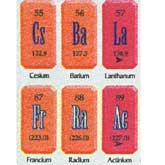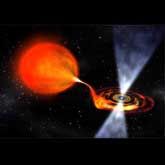Coffee: Beverage Of Sedition
 Coffee is the most popular drink in the world, consumed regularly by about one-third of the global population. Tea runs a close second. And then, of course, there's Coca-Cola. Why are coffee, tea, and cola so popular? They all contain caffeine, which acts as a stimulant -- just like the closely-related alkaloids cocaine and nicotine. Also like those other chemicals, caffeine raises levels of dopamine, a neurotransmitter that activates the brain's pleasure centers. Caffeine is addictive, too, so once you start drinking it regularly it's hard to quit. Symptoms of caffeine withdrawal include a severe headache that can last for several days.
Coffee is the most popular drink in the world, consumed regularly by about one-third of the global population. Tea runs a close second. And then, of course, there's Coca-Cola. Why are coffee, tea, and cola so popular? They all contain caffeine, which acts as a stimulant -- just like the closely-related alkaloids cocaine and nicotine. Also like those other chemicals, caffeine raises levels of dopamine, a neurotransmitter that activates the brain's pleasure centers. Caffeine is addictive, too, so once you start drinking it regularly it's hard to quit. Symptoms of caffeine withdrawal include a severe headache that can last for several days.
As a stimulant, caffeine can push the brain and body into heightened alertness, and by raising dopamine levels it can serve as a powerful motivator. That's why employers offer free coffee to their employees. But things have not always been that way. In both Asia and Europe, holders of power have tried to ban coffee houses as places where 'idle and disaffected persons' get together to discuss politics.
A 17th-century traveler quoted in Hugh Johnson's history of wine noted that the Turkish Vizier had tried to ban coffee houses because they were 'melancholy places where Seditions were vented, where reflections were made on all occurrences of State, and discontents published and aggravated.' At around the same time, England's King Charles II issued a proclamation banning coffee houses as places where 'divers false, malicious and scandalous reports are devised and spread abroad to the defamation of his Majesty's Government.' (The English proclamation also banned the selling of chocolate, sherbet, and tea.) Needless to say, the popularity of coffee houses proved far greater, and far more enduring, than that of the King and Vizier.







